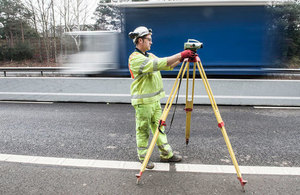From curious to furious - the crucial 15 minutes that could wreck your summer trip
Frustrated kids go from curious to furious in just 15 minutes during long summer holiday car trips, according to a new survey by Highways England.

Parents say that, on average, kids start asking “are we nearly there yet?” around 2 hours and 23 minutes into a journey. And by 2 hours and 37 minutes in, angry rows have started to break out.
Many parents said they expected their children to get bored and argue: with some saying this happens within the first hour of a trip. The survey found 79% of parents travelling with two or more kids this summer said arguments were inevitable.
Simon Sheldon-Wilson, Highways England’s director of customer operations and a father of four, said:
A decent break should help stave off the kids’ boredom, and hopefully prevent arguments from stressing your family before you’ve even reached your destination.
We always advise drivers to take a proper break every two hours during a long trip. Our survey suggests parents travelling with kids should plan a break around two hours in, to help young passengers cope with the boredom.
In total, 291 drivers completed the online survey, which showed the average summer journey would last 3 hours and 49 minutes.
Despite this, 55% of drivers said they didn’t plan to take any proper breaks during the trip (other than quick toilet stops).
Around 25% of respondents said their summer journey would take more than five hours. And 16% said they planned to travel non-stop.
Simon Sheldon-Wilson said:
Drivers who plan their trips tend to have better journeys. They factor in time for rest stops, so the driver can re-focus and the kids don’t get bored. They also spend time choosing the best route – rather than blindly picking the “fastest option” in their sat nav, only to find it’s anything but.
To check real-time traffic information prior to a journey, drivers can use Traffic England. Live traffic information is also available via Twitter (see the full list of channels on GOV.UK.
Around 53% of drivers said they have driven their route before, so know what to expect. But for almost half of drivers, their holiday drive will be unfamiliar, take longer than usual journeys, and follow routes they don’t traditionally use – such as smart motorways or the Dartford Crossing.
Highways England advises drivers to know what to expect on their journeys – especially if they are likely to use a smart motorway. Smart motorways use technology to help keep traffic flowing: and drivers may see variable speed limits in red rings (enforceable speed limits which appear over sections of motorway) or a red X, telling them the lane is closed. It’s important drivers know what to look out for, and how to react.
Drivers travelling via Dartford Crossing need to remember that the way to pay the crossing charge has changed. Instead of stopping at a barrier to pay the charge, you now pay online, by phone or at one of thousands of Payzone retail outlets nationwide. You can pay any time in advance, or by midnight the day after you have used the crossing. The changes are known as Dart Charge, and are speeding up journeys at the Dartford Crossing.
As well as advising drivers to prepare their route, Highways England is also encouraging everyone to prepare their vehicle, too. The survey found 14% of drivers have suffered a puncture during a long summer trip, while 20% said their vehicle had a different sort of breakdown
Simon Sheldon-Wilson said:
As well as planning your journey, it’s definitely a good idea to check your car, too.
A holiday trip can be ruined by breaking down. Being prepared for your trip by having enough fuel, safe tyres and a well-serviced vehicle, can help reduce the risk of an avoidable breakdown wrecking your journey.
Later in the summer, we’ll also help drivers by lifting as many roadworks as possible over the August bank holiday. Further information on what is planned, alongside bank holiday hotspot information for roads around the country, will be published next month.
General enquiries
Members of the public should contact the Highways England customer contact centre on 0300 123 5000.
Media enquiries
Journalists should contact the Highways England press office on 0844 693 1448 and use the menu to speak to the most appropriate press officer.